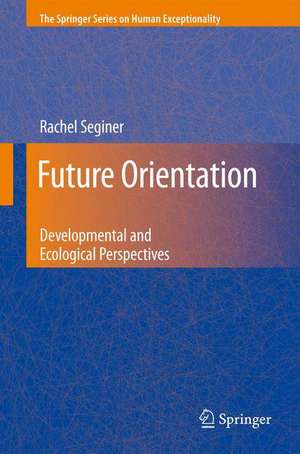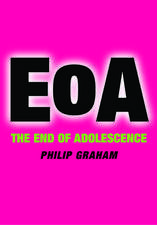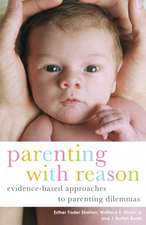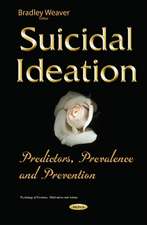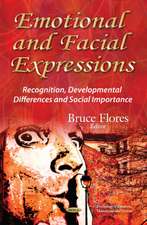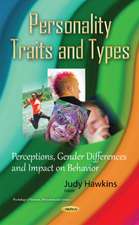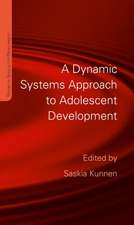Future Orientation: Developmental and Ecological Perspectives: The Springer Series on Human Exceptionality
Autor Rachel Segineren Limba Engleză Hardback – 13 mar 2009
| Toate formatele și edițiile | Preț | Express |
|---|---|---|
| Paperback (1) | 639.59 lei 43-57 zile | |
| Springer Us – 8 dec 2010 | 639.59 lei 43-57 zile | |
| Hardback (1) | 645.79 lei 43-57 zile | |
| Springer Us – 13 mar 2009 | 645.79 lei 43-57 zile |
Din seria The Springer Series on Human Exceptionality
- 18%
 Preț: 1013.96 lei
Preț: 1013.96 lei - 15%
 Preț: 645.14 lei
Preț: 645.14 lei - 18%
 Preț: 976.54 lei
Preț: 976.54 lei - 5%
 Preț: 718.10 lei
Preț: 718.10 lei -
 Preț: 384.48 lei
Preț: 384.48 lei - 5%
 Preț: 608.75 lei
Preț: 608.75 lei - 18%
 Preț: 954.62 lei
Preț: 954.62 lei -
 Preț: 390.46 lei
Preț: 390.46 lei - 18%
 Preț: 998.79 lei
Preț: 998.79 lei -
 Preț: 386.99 lei
Preț: 386.99 lei - 18%
 Preț: 900.29 lei
Preț: 900.29 lei - 20%
 Preț: 552.12 lei
Preț: 552.12 lei - 15%
 Preț: 533.72 lei
Preț: 533.72 lei - 18%
 Preț: 1404.15 lei
Preț: 1404.15 lei - 18%
 Preț: 1115.63 lei
Preț: 1115.63 lei - 15%
 Preț: 643.48 lei
Preț: 643.48 lei - 18%
 Preț: 1123.04 lei
Preț: 1123.04 lei
Preț: 645.79 lei
Preț vechi: 759.76 lei
-15% Nou
Puncte Express: 969
Preț estimativ în valută:
123.57€ • 129.36$ • 102.25£
123.57€ • 129.36$ • 102.25£
Carte tipărită la comandă
Livrare economică 07-21 aprilie
Preluare comenzi: 021 569.72.76
Specificații
ISBN-13: 9780387886404
ISBN-10: 0387886400
Pagini: 258
Ilustrații: XVIII, 258 p.
Dimensiuni: 155 x 235 x 18 mm
Greutate: 0.57 kg
Ediția:2009
Editura: Springer Us
Colecția Springer
Seria The Springer Series on Human Exceptionality
Locul publicării:New York, NY, United States
ISBN-10: 0387886400
Pagini: 258
Ilustrații: XVIII, 258 p.
Dimensiuni: 155 x 235 x 18 mm
Greutate: 0.57 kg
Ediția:2009
Editura: Springer Us
Colecția Springer
Seria The Springer Series on Human Exceptionality
Locul publicării:New York, NY, United States
Public țintă
Professional/practitionerCuprins
Future Orientation: A Conceptual Framework.- The Evolvement of Future Orientation: Infancy Through Middle Childhood.- Future Orientation in Personality Contexts.- Future Orientation Sex Differences.- The Effect of Parenting on Future Orientation.- The Effect of Contemporaries: Siblings and Peers.- Future Orientation Outcomes.- Summary, Conclusions and Future Directions for Research and Action.
Recenzii
From the reviews:
"Future orientation, its antecedents, and its outcomes are the focus of Rachel Seginer’s book Future Orientation: Developmental and Ecological Perspectives. The book provides a comprehensive review of the theoretical approaches to future orientation, focusing primarily on adolescent development. … Readers … will find the book a useful reference on the topic of future orientation." (Shelia M. Kennison, PsycCRITIQUES, Vol. 54 (45), November, 2009)
"Future orientation, its antecedents, and its outcomes are the focus of Rachel Seginer’s book Future Orientation: Developmental and Ecological Perspectives. The book provides a comprehensive review of the theoretical approaches to future orientation, focusing primarily on adolescent development. … Readers … will find the book a useful reference on the topic of future orientation." (Shelia M. Kennison, PsycCRITIQUES, Vol. 54 (45), November, 2009)
Notă biografică
Professor Rachel Seginer's research focuses on the development of adolescents and emerging adults. Although her main interest in recent years has focused on future orientation in ecological perspective, her work also examines sibling relationships and parents’ educational involvement and its effect on educational outcomes. Her studies have been published in leading developmental and cross-cultural journals and edited volumes. She serves on the editorial boards of two journals: the Journal of Research on Adolescence and the Journal of Adolescent Research. Professor Seginer received her Ph.D. in Psychology from the Hebrew University in Jerusalem. She is the former Dean of the Faculty of Education, University of Haifa, Israel, where she is currently teaching developmental and adolescent development courses.
Textul de pe ultima copertă
Where am I going? What do I want to do with my life? Such questions are typical of—even essential to—adolescence and continue to influence individuals throughout their lifetimes. And although human beings are capable of anticipating future events even as infants, the teen years are the peak period for weighing options and setting long-range goals. Future Orientation: Development and Ecological Perspectives synthesizes a wealth of theory and empirical data to explore future thinking as both a developmental process and an individual one.
Starting with its origins in childhood, the book identifies the forces that affect this evolution, from early interactions with parents to personality traits and self-processes. Adolescents' future orientation is analyzed by its influences—a complex network of gender expectations, family and peer relationships, and cultural variables—and is, in turn, linked to developmental outcomes at school, capacity for intimacy, and adjustment in emerging adulthood and in adult life. This unique volume:
Starting with its origins in childhood, the book identifies the forces that affect this evolution, from early interactions with parents to personality traits and self-processes. Adolescents' future orientation is analyzed by its influences—a complex network of gender expectations, family and peer relationships, and cultural variables—and is, in turn, linked to developmental outcomes at school, capacity for intimacy, and adjustment in emerging adulthood and in adult life. This unique volume:
- Examines future orientation as an aspect of positive psychology, focusing on the stages of preadolescence, adolescence, and emerging adulthood.
- Relates future orientation with other psychological constructs relevant to this age group, including identity and self-esteem.
- Offers ecological and developmental perspectives to explore the effects of family members and peer groups on future thinking.
- Compares adolescent future thinking across cultures and discusses the roles of gender and gender constructs in future orientation.
- Complements developmental and educational psychology as well as counseling and parental guidance courses.
Caracteristici
Examines future orientation as an aspect of positive psychology, focusing on the stages of preadolescence, adolescence, and emerging adulthood Highlights the relationship between future orientation and other psychological constructs (e.g., self-esteem, loneliness, identity, and intimacy) particularly relevant to these age periods Offers an ecological as well as a developmental perspective, examining the relations between family members and peer groups Provides a cross-cultural perspective, presenting theoretical analysis and empirical study findings that emphasize the commonalities and differences of adolescent future orientation across cultures Serves as a useful complement to developmental and educational psychology as well as counseling and parental guidance courses Includes supplementary material: sn.pub/extras
